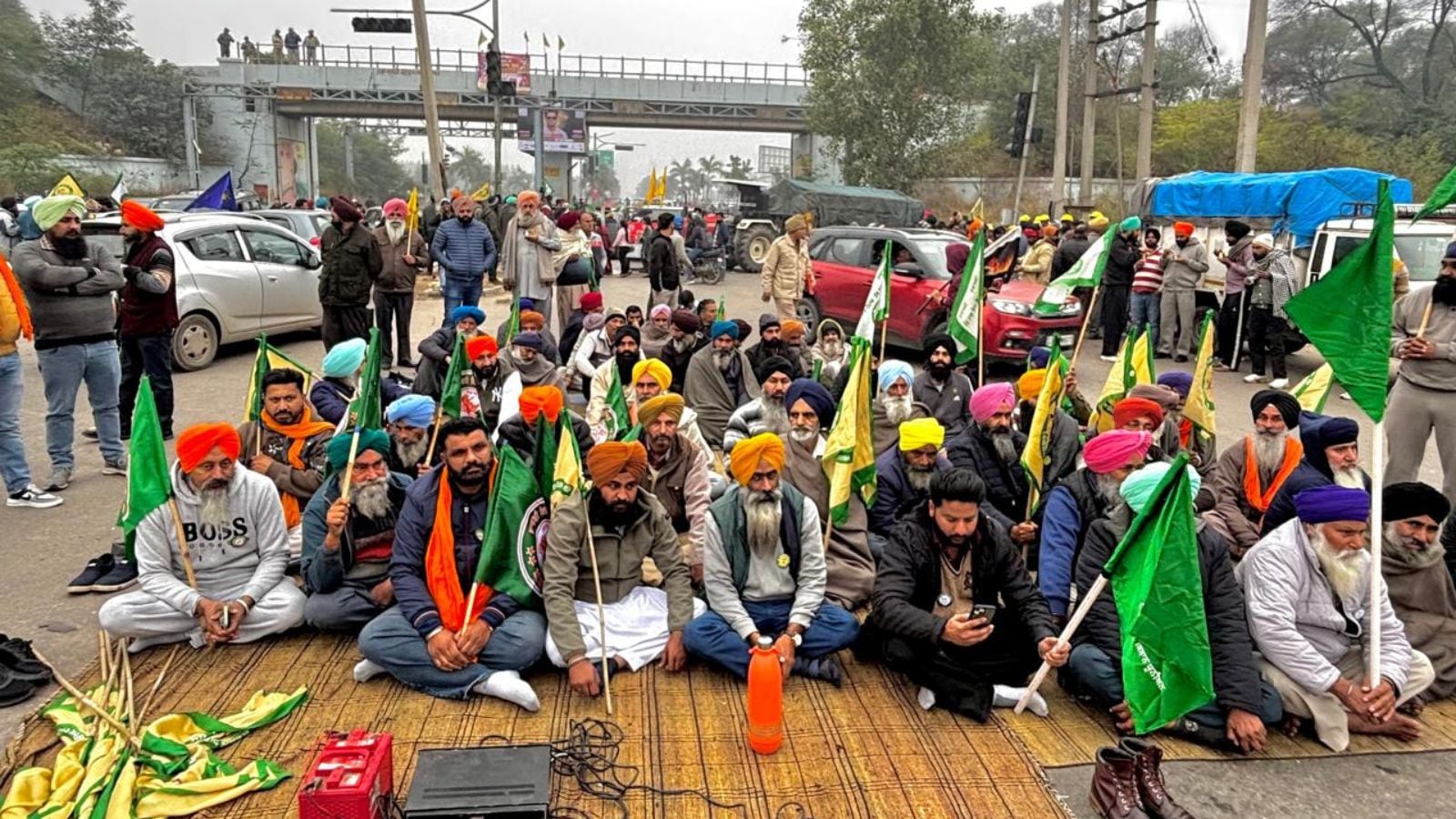 |
|
The ongoing farmers' protest in Punjab, spearheaded by the Kisan Mazdoor Morcha (KMM) and Sanyukt Kisan Morcha Non-Political (SKM-NP), has escalated significantly with a state-wide shutdown. This action, taken in solidarity with hunger-striking leader Jagjit Singh Dallewal, underscores the gravity of the farmers' demands and their determination to secure their livelihoods. The protest, initially focused on twelve core issues, has expanded to include demands for justice in relation to the death of Shubhkaran Singh during clashes with Haryana security forces. The core demands revolve around crucial economic and social justice issues impacting the agricultural sector in India. The depth of the crisis is evident in the breadth of their concerns, ranging from immediate economic relief to systemic reform within the agricultural policy framework. The intensity of their protest, including the state-wide shutdown, demonstrates a collective frustration with the lack of substantive response from the central government despite previous attempts at dialogue. The sustained nature of the protest signals a widespread dissatisfaction among farmers, suggesting deeper systemic problems that require immediate attention. The movement is clearly unified in its demands, using concerted action to amplify their voices and pressure the government for change.
Central to the farmers' demands is the implementation of a Minimum Support Price (MSP) guaranteeing the purchase of all crops at prices recommended by the Dr. Swaminathan Commission. This demand highlights the urgent need for price stability and a fair return for farmers' labor. The call for a complete debt waiver for farmers and laborers underscores the crippling burden of debt that many face, often pushing them to the brink of destitution. The reinstatement of the 2013 Land Acquisition Act, with stipulations for written consent and four times the collector rate compensation, showcases a deep concern over land acquisition practices and the displacement of farmers. These demands reflect a desire for fairer and more equitable land management practices within the agricultural sector, emphasizing the need for transparency and adequate compensation. The call for justice concerning the October 2021 Lakhimpur Kheri violence highlights a deep sense of injustice and a demand for accountability for those in positions of power who have failed to protect the rights of farmers. These issues are not merely economic; they reflect a deep-seated dissatisfaction with the lack of justice and protection afforded to farmers.
Beyond immediate economic concerns, the farmers' demands extend to broader systemic reforms. The request to withdraw from the World Trade Organization (WTO) and suspend free trade agreements reflects a belief that these agreements have negatively impacted domestic agriculture. The demand for pensions for farmers and agricultural laborers addresses the lack of social security for this crucial sector of the population. Compensation and government jobs for the families of farmers who died during protests against the now-repealed farm laws are critical demands for recognition and acknowledgement of the sacrifices made. The push to repeal the Electricity (Amendment) Bill, 2020, highlights concerns about its potential impact on farmers' access to electricity. The demand for 200 days of employment per year under MGNREGA, with a daily wage of Rs 700, shows a desire to supplement farmers' income and connect MGNREGA with agriculture. Stricter penalties for companies producing fake seeds, pesticides, and fertilizers aim to protect farmers from exploitation and ensure the quality of agricultural inputs. The establishment of a National Commission for chilli, turmeric, and other spices underscores the need for specialized support for specific agricultural sectors.
The demands regarding the implementation of the Fifth Schedule of the Constitution and the prevention of corporate exploitation of tribal lands demonstrate the farmers' concern for broader social justice and environmental protection. The demand for justice for Shubhkaran Singh further underscores the heightened tensions and the demand for accountability for those responsible for the violence against protesting farmers. The opposition to the National Policy Framework for Agriculture Marketing reflects a fear that it might serve as a backdoor attempt to reintroduce the provisions of the repealed farm laws. The lack of a response from the Centre following discussions with Union ministers and the repeated appeals to the Prime Minister highlight the deep divide and the urgent need for a meaningful dialogue to address the farmers' concerns. The sustained nature of the protest, despite the lack of immediate progress, showcases the determination of Punjab farmers to secure their rights and livelihoods. The overall situation necessitates immediate attention to prevent further escalation of the conflict and to find a lasting solution that addresses the critical needs of the agricultural community.
The ongoing situation highlights not just the economic struggles of farmers but also reveals deeper issues of social justice, governance, and equitable policies. The sheer number and scope of demands reflect a collective frustration over decades of unmet needs and a lack of effective government response. The absence of dialogue and the ongoing protests highlight the urgent need for a thorough reassessment of agricultural policies and a commitment to engaging with the concerns of those who form the backbone of India’s food security. The farmers' continued determination underlines the urgency of the situation and the importance of finding a long-term solution that addresses both the immediate needs and the systemic issues plaguing the agricultural sector.
Source: Farmers intensify protest with Punjab bandh. Here’s what their demands are
